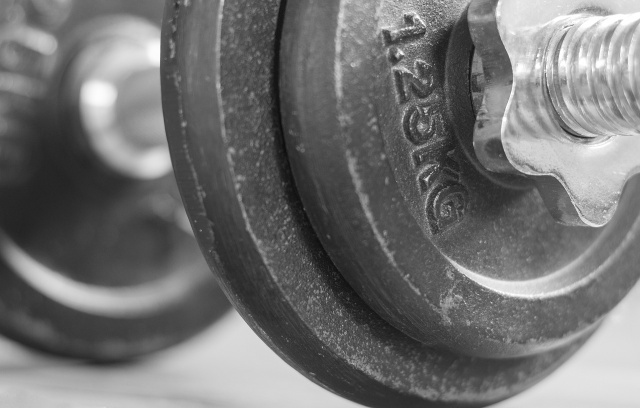Weight loss is not linear because the body adapts to changes, causing fluctuations. Metabolism, hormones, and muscle gain also impact progress.
Weight loss journeys often come with ups and downs. Many factors influence the rate at which you shed pounds. Metabolism changes as you lose weight, slowing down over time. Hormonal fluctuations can also affect hunger and fat storage. Building muscle while losing fat can make the scale misleading.
Understanding these factors helps set realistic expectations. Tracking progress through various methods like measurements, photos, and how clothes fit can offer a clearer picture. This holistic approach can maintain motivation and ensure long-term success.
Complex Nature Of Weight Loss
Weight loss is a journey filled with ups and downs. It is not a straight path. Several factors influence how weight changes over time. This complexity can make the process challenging.
Factors Affecting Weight
Many factors affect your weight. Here are some key ones:
- Diet: What you eat greatly impacts your weight.
- Exercise: Physical activity helps burn calories.
- Sleep: Poor sleep can lead to weight gain.
- Stress: High stress can cause overeating.
- Metabolism: Your body’s rate of burning calories.
Individual Variability
Each person is unique. This means weight loss is different for everyone. Here’s why:
| Factor | Impact |
|---|---|
| Genetics | Some people have genes that make losing weight harder. |
| Age | Metabolism slows down as you age. |
| Gender | Men and women lose weight differently. |
| Health Conditions | Conditions like thyroid issues can affect weight loss. |
Understanding these factors can help you stay patient. Weight loss is not a race. It’s a personal journey that requires time.
Role Of Metabolism
Weight loss is rarely a straight path. The Role of Metabolism greatly influences this journey. Metabolism includes all the processes your body uses to convert food into energy. This energy keeps your body functioning. Let’s dive into the two key aspects of metabolism: Basal Metabolic Rate and Adaptive Thermogenesis.
Basal Metabolic Rate
Your Basal Metabolic Rate (BMR) is the number of calories your body needs at rest. This energy supports basic functions like breathing, circulating blood, and cell production.
- Age: BMR decreases with age.
- Gender: Men usually have a higher BMR than women.
- Muscle Mass: More muscle means a higher BMR.
Your BMR makes up a large part of your total calorie burn. Understanding your BMR helps in planning effective weight loss strategies.
Adaptive Thermogenesis
Adaptive Thermogenesis is your body’s way of responding to calorie intake changes. When you eat less, your body burns fewer calories to conserve energy. This makes weight loss slower.
| Factor | Effect |
|---|---|
| Calorie Restriction | Decreases metabolic rate |
| Overeating | Increases metabolic rate |
Adaptive Thermogenesis can make sustained weight loss challenging. Your body aims to maintain balance, making it adapt to changes in diet and activity levels.
Understanding these aspects of metabolism is key to managing weight loss expectations. While it may not be linear, knowing your BMR and Adaptive Thermogenesis can guide you. This knowledge helps you create a balanced and realistic weight loss plan.
Impact Of Hormones
Hormones play a significant role in weight loss. They can affect your hunger, metabolism, and fat storage. Understanding how these hormones work can help you manage your weight better. Let’s dive deeper into the impact of key hormones like Insulin and Cortisol.
Insulin And Weight Gain
Insulin is a hormone that helps regulate blood sugar levels. When you eat, your body releases insulin to help cells absorb sugar from your blood. This sugar is then used for energy or stored as fat.
If you eat too many carbs or sugary foods, your insulin levels may spike. High insulin levels can lead to weight gain. This is because insulin promotes fat storage. It’s crucial to maintain balanced insulin levels to support your weight loss journey.
Here are some tips to manage insulin levels:
- Eat balanced meals with protein, fat, and carbs.
- Avoid sugary snacks and beverages.
- Exercise regularly to improve insulin sensitivity.
Cortisol And Stress
Cortisol is known as the stress hormone. It is released when you are stressed. High cortisol levels can lead to weight gain, especially around the belly.
When you are stressed, your body may crave high-calorie foods. This is because cortisol increases your appetite. Overeating these foods can lead to weight gain.
To manage cortisol levels, try these methods:
- Practice mindfulness and meditation.
- Get enough sleep every night.
- Engage in regular physical activity.

Credit: everystepfitness.com
Dietary Influences
Weight loss is not always straightforward. One significant factor influencing this is diet. Dietary influences can cause fluctuations in weight loss progress. Understanding these influences can help you manage your weight better.
Caloric Intake Variability
Your daily caloric intake can vary. This variability affects weight loss. Some days you may consume more calories. Other days you may eat fewer. This inconsistency can impact your weight loss journey.
Tracking your calories helps maintain consistency. Aim for a balanced caloric intake each day. Avoid large fluctuations to see steady progress.
Macronutrient Composition
Macronutrients are crucial for weight loss. They include proteins, fats, and carbohydrates. The composition of these macronutrients affects how you lose weight.
A diet high in protein can boost metabolism. It also helps preserve muscle mass. Fats are essential for energy. Carbohydrates provide fuel but can spike insulin levels.
Balancing these macronutrients is key. A table can help visualize the ideal macronutrient breakdown:
| Macronutrient | Recommended Intake (%) |
|---|---|
| Protein | 25-30% |
| Fats | 20-35% |
| Carbohydrates | 45-50% |
Following these guidelines can help you lose weight effectively. Proper macronutrient composition aids in sustaining energy and muscle. It also prevents overeating and cravings.
By focusing on these dietary influences, you can achieve more consistent weight loss. Remember, balance is crucial. Keep an eye on both caloric intake and macronutrient composition.
Exercise And Physical Activity
Exercise and physical activity play a crucial role in weight loss. Though many assume consistent exercise leads to steady weight reduction, this isn’t always true. Various factors influence how our bodies respond to exercise, leading to fluctuations in weight loss.
Types Of Workouts
Different workouts affect the body in unique ways. Let’s look at some common types:
- Cardio: Activities like running, cycling, and swimming. These boost your heart rate and burn calories.
- Strength Training: Lifting weights or using resistance bands. This helps build muscle, which can increase metabolism.
- High-Intensity Interval Training (HIIT): Short bursts of intense activity followed by rest. This can burn a lot of calories in a short time.
- Flexibility and Balance: Yoga and Pilates improve flexibility and core strength.
Exercise Adaptation
The body adapts to regular exercise over time. This adaptation can affect weight loss.
| Phase | Description |
|---|---|
| Initial Phase | Body reacts to new exercise, leading to quick weight loss. |
| Plateau Phase | Body adapts, and weight loss slows down or stops. |
| Adjustment Phase | Changing workouts can help overcome plateaus and restart weight loss. |
To keep losing weight, it’s essential to vary your workouts. Trying new types of exercise can challenge the body differently. This prevents adaptation and promotes continuous progress.

Credit: www.pinterest.com
Psychological Factors
Weight loss is not just about diet and exercise. Psychological factors play a crucial role too. Our minds affect our eating habits and motivation. Understanding these factors can help us manage weight better.
Motivation And Mindset
Motivation is key to weight loss. But it can fluctuate. A positive mindset can boost motivation. Set realistic goals to stay motivated. Celebrate small victories to keep spirits high.
Here are some tips to maintain motivation:
- Set short-term goals.
- Track your progress.
- Reward yourself for milestones.
- Stay positive and avoid negative self-talk.
Emotional Eating
Emotions can trigger eating. Stress, sadness, or boredom often lead to overeating. Recognizing these triggers is important. Find alternative ways to cope with emotions.
Consider these strategies to manage emotional eating:
- Keep a food diary to identify triggers.
- Practice mindfulness and meditation.
- Engage in physical activity to relieve stress.
- Seek support from friends or professionals.
Here’s a simple table to summarize emotional eating triggers and solutions:
| Trigger | Solution |
|---|---|
| Stress | Exercise, Deep Breathing |
| Sadness | Talk to a Friend, Journaling |
| Boredom | Hobbies, Reading |
Understanding and managing these psychological factors can lead to better weight management. Stay mindful of your mental health on your weight loss journey.
Plateaus In Weight Loss
Many people experience plateaus during their weight loss journey. It can be frustrating. Understanding the causes and strategies to overcome them is key. Let’s dive deeper into why weight loss is not linear.
Causes Of Plateaus
Several factors cause weight loss plateaus. Here are some common reasons:
- Metabolic Adaptation: Your body adjusts to a lower calorie intake.
- Loss of Muscle Mass: Muscle burns more calories than fat. Losing muscle slows metabolism.
- Water Retention: Changes in diet or stress can cause your body to retain water.
- Decreased Physical Activity: You might be moving less without realizing.
Strategies To Overcome
Overcoming a plateau requires strategy. Here are effective methods:
- Adjust Your Caloric Intake: Slightly reduce or increase your calories.
- Change Your Exercise Routine: Add variety to your workouts. Include both cardio and strength training.
- Stay Hydrated: Drink plenty of water. It helps reduce water retention.
- Track Your Progress: Keep a journal of your food intake and activity levels.
- Get Enough Sleep: Aim for 7-9 hours of sleep each night. Rest is crucial for metabolism.
Plateaus are a natural part of weight loss. By understanding their causes and adopting the right strategies, you can continue your journey effectively.

Credit: myfitnesspro.co.uk
Sustainable Weight Management
Sustainable weight management is key for long-term health. It’s not just about losing pounds quickly. It’s about building habits that last. Weight loss is not a straight line. There are ups and downs. Understanding this helps you stay on track.
Long-term Habits
Developing long-term habits is essential. Quick fixes don’t work. You need to build habits that stick. Here are some tips:
- Eat balanced meals with fruits and vegetables.
- Exercise regularly, even if it’s just a walk.
- Stay hydrated by drinking enough water.
- Get enough sleep each night.
These habits support sustainable weight management. They help you stay healthy and maintain your weight.
Realistic Goals
Setting realistic goals is crucial. Don’t aim to lose a lot of weight quickly. Set small, achievable goals instead. Here is a simple plan:
| Time Frame | Goal |
|---|---|
| 1 Month | Lose 2-4 pounds |
| 3 Months | Lose 5-10 pounds |
| 6 Months | Lose 10-20 pounds |
Small goals are easier to reach. They keep you motivated. Celebrate each milestone. This keeps you on track.
Frequently Asked Questions
Why Is Weight Loss So Inconsistent?
Weight loss varies due to factors like diet, exercise, metabolism, and hormonal changes. Stress and sleep patterns also affect progress.
Can You Lose Weight Linearly?
Weight loss is rarely linear. Factors like metabolism, diet, and exercise cause fluctuations. Consistency is key for long-term success.
Why Don’t People Lose Weight In A Linear Fashion?
Weight loss isn’t linear due to metabolic adaptation, water retention, muscle gain, and hormonal fluctuations. Diet and exercise variations also impact progress.
Why Is Weight Loss Not Steady?
Weight loss isn’t steady due to metabolic changes, muscle gain, and water retention. Bodies adapt, causing fluctuations. Consistent habits help.
Conclusion
Weight loss is a complex journey with ups and downs. Understanding its non-linear nature can help set realistic goals. By staying patient and consistent, you’ll achieve lasting results. Embrace the process and celebrate small victories. Remember, every step forward counts towards a healthier you.
Keep pushing, and you’ll see progress.


